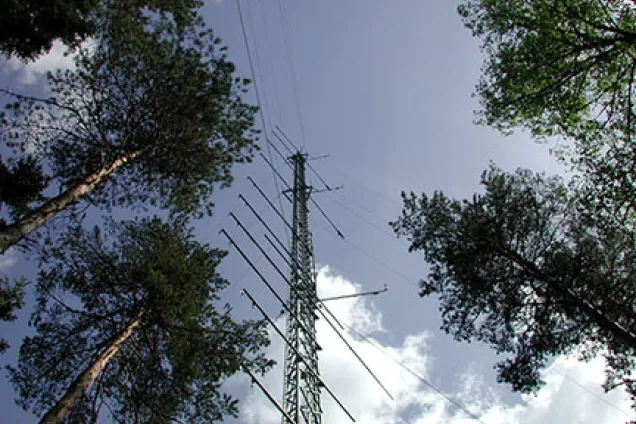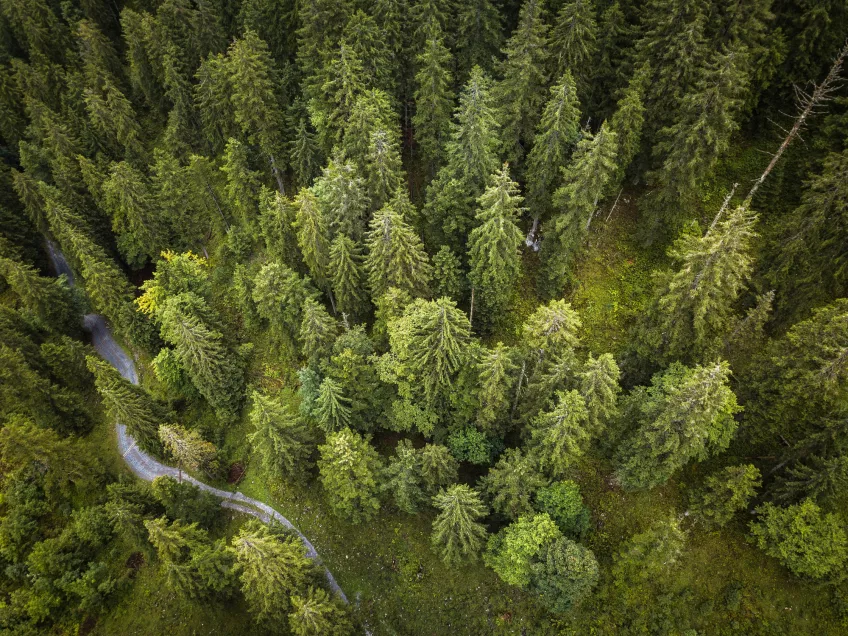Changes in climate and land use - effects on ecosystems
Human activity jeopardizes ecosystems, both directly and indirectly. Direct impacts include the loss of natural habitats, intensified land use and pollution. Indirect impacts result from the effects of climate change, such as increased frequency and intensity of forest fires, droughts, and heatwaves. A better understanding of ecosystem functioning is crucial to understand and address the threats we face due to these global challenges, and to propose and evaluate efforts to mitigate them.
At CEC, we study key processes in ecosystems from microscopic to global scales. This includes biogeochemical processes in aquatic and terrestrial environments, interactions between vegetation and the atmosphere, carbon and nutrient cycles, and the connections between biodiversity and the functions of ecosystems. Central to our research is understanding how ecosystems respond to disturbances, such as forest fires and deforestation, intensified land use or land abandonment, and the implications this has for ecosystem management.
To quantify small-scale processes in soil and water, we use various methods including molecular and physicochemical techniques, such as synchrotron-based microscopy. At larger scales, we employ remote sensing, field measurements, and monitoring (including the use of ICOS) to assess the effects of climate change and land use changes on vegetation and ecosystems, such as changes in greenhouse gas uptake and emissions. Local, regional, and global processes and their interactions are studied using climate models and vegetation models. We also utilize quantitative and qualitative methods to investigate and model the consequences of implementing policy decisions on broader bioeconomic systems linked to land use and ecosystems, such as the forestry industry and food systems.
Our research encompasses ecosystems worldwide, including studies in boreal ecosystems as well as in Arctic and tropical environments.
Related research environments and research infrastructure
Contact
Marianne Hall
Research coordinator CEC
E-mail: marianne [dot] hall [at] cec [dot] lu [dot] se (marianne[dot]hall[at]cec[dot]lu[dot]se)
Mobile: +46 73 046 16 73
Juliana Dänhardt
Research coordinator, external collaborations
E-mail: juliana [dot] danhardt [at] cec [dot] lu [dot] se (juliana[dot]danhardt[at]cec[dot]lu[dot]se)
Mobile: +46 70 303 44 73
More information about our research
Learn more about our research by searching for CEC and our researchers at the Lund university research portal.

BECC
Biodiversity and ecosystem-services in a changing climate.

MERGE
Modeling of the Earth's climate system, with a focus on vegetation and terrestrial ecosystems.

ICOS Sweden
Research infrastructure specified at greenhouse gas exchanges between the Earth's surface and the atmosphere.

Nature based future solutions
Sustainable solutions that benefit the climate, biodiversity and society.

LINXS
An institute for advanced studies focusing on the use of neutrons and X-rays.
